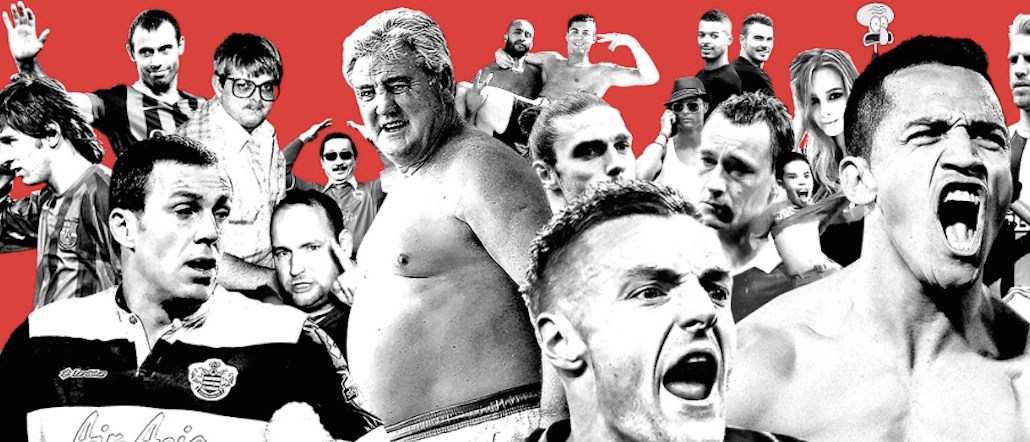Secure your place at the Digiday Media Buying Summit in Nashville, March 2-4

Dream Team, The Sun’s fantasy football site, pumps out a year-round mix of video and editorial around football, fan culture and grassroots teams. Over the past few weeks, it has added a new move to its arsenal: Facebook Live video.
The Dream Team’s Facebook videos already net 75 million monthly views from 1.6 million Facebook followers, according to Tubular Labs. It started experimenting with Facebook Live in April. Early attempts saw its Dream Team journalists chatting to each other about football news or eating chilies in the studio — videos that got between 30,000 and 60,000 views.
“It never really felt like us, even though it was our own journalists,” Dream Team’s head of social and platforms, Greg Halfacre, told Digiday. “Dream Team has always had an irreverent, risky, more fan-oriented tone. Now we’re more clear about the moments we want to capture.”
It turns out the moments they want to capture are the fans watching the game — sort of like a Twitch for football. The first attempt at capturing the fan experience was streamed from a pub in Leicester when the city’s football team drew with Manchester United, near enough securing the Premier League title. Viewers tuned in to watch fans reacting to the match. The video racked up 2.3 million views; at its peak viewership, it had 60,000 people watching. The second video was in the street outside the stadium after the last game at West Ham’s Upton Park football ground, which got 420,000 views.
Viewers leave comments in real time about what they want to see next, where they want to go, directing the producer, head of video Mark Hudson. It has a low-fi, grassroots quality. “Now we use it to capture the peak moment of the day, whether that’s the last walk up to Upton Park, or the atmosphere after the game around the stadium, or where the after-party is,” said Halfacre.
Dream Team, with a video team of nine people out of 25 staffers, has established a four-point checklist that dictates what it takes for something to qualify for Facebook Live: The post has to be timely, atmospheric, put the viewer where they want to be, and allow the viewer to dictate the broadcast.
“Audience retention is key for us,” said Halfacre. “For Leicester City, the retention was high; people were watching for 40 minutes long. For our other Facebook Live videos, it was more like 14 minutes. Total views is the first metric, then looking at audience retention and peak viewers.”
Tim Crow, CEO of sponsorship agency Synergy, said Dream Team’s live video success is a combination of content (football) and timing (around newsworthy stories). “Anything you get half right with football will always fly,” he told Digiday. “They’ve made a good start, sustaining it outside of the news-cycle is the challenge; it’s going to get tougher and tougher, so they need to be fast.”
Luckily, with the UEFA Cup around the corner, Dream Team has more match days to film fan-led live videos. It hopes to send three reporters to cover the three England games in France this June. “While there are people craving to be at the UEFA Cup, there will be a demand; there will always be a global audience involved in a Premier League narrative,” said Halfacre.
So far, this is just an audience play, monetizing is the next step if it wants to continue. Ideally, Halfacre wants brands to pay for co-branded Facebook Live video, but seeking out dramatic football fan-led, edgy stories live has an editorial risk.
“It’s a tough sell for brands if you have no control over what you’re being associated with,” said Joel Seymour-Hyde, vp of strategy EMEI at sports and entertainment content marketing agency Octagon. Brands are likely to only sign off on more strict sign-up procedures, which would be at the risk of losing the live authenticity.
Failing to get brands on board with this, it will be back to eating chilies in the studio for the Dream Team.
Images courtesy of Dream Team via Facebook.
More in Media

From feeds to streets: How mega influencer Haley Baylee is diversifying beyond platform algorithms
Kalil is partnering with LinkNYC to take her social media content into the real world and the streets of NYC.

‘A brand trip’: How the creator economy showed up at this year’s Super Bowl
Super Bowl 2026 had more on-the-ground brand activations and creator participation than ever, showcasing how it’s become a massive IRL moment for the creator economy.

Media Briefing: Turning scraped content into paid assets — Amazon and Microsoft build AI marketplaces
Amazon plans an AI content marketplace to join Microsoft’s efforts and pay publishers — but it relies on AI com stop scraping for free.





